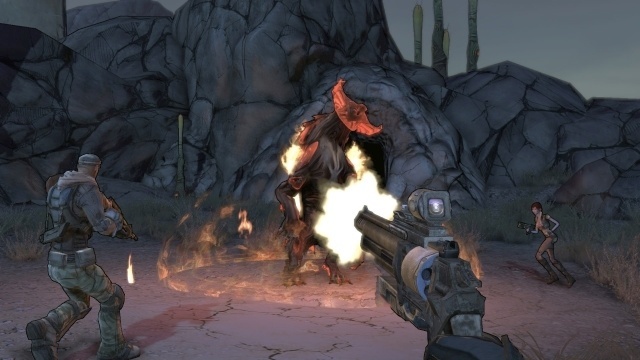The first time I ever was an officer in a guild, I was pretty terrible. It’s quite possible that I’m still pretty terrible, but I’d like to hope that I’ve at least graduated beyond the obvious mistakes.
When you’re given power and authority over a group of other players, even with the best intentions, there’s a tendency to make the same general sorts of mistakes. It’s not malicious; it’s just a natural set of traps that everyone can fall into. The key, then, is to make sure that you know about the mistakes ahead of time and avoid slipping into those traps early. You’ll still screw up, but at least it’ll be for exciting new reasons.

Overinvesting
There’s an old anecdote that I’ve heard many times about a man who decided he was going to get into shape by going to the gym every day. The first day, he went in, started lifting weights, and he felt okay about it. So he did dozens of sets on every single machine, and he felt all right after each one. He figured he could keep up that pace forever.
A day later, he woke up with his muscles so sore and exhausted that he promised himself that he’d never set foot in that gym again.
The lesson here is to never exercise. But a better lesson is that overinvesting and throwing everything you can into your position is a bad idea. I’m not saying that becoming an officer should be met with a shrug and a lackadaisical eye-roll, but you shouldn’t necessarily run into the position with an intent of doing everything you can instantly.
First of all, it can lead to burnout something awful. Effort, concentration, and enthusiasm are all limited resources, even though we don’t like to admit it to ourselves. Giving all of yourself to what is ostensibly a hobby for even two weeks is going to lead to burnout and exhaustion something awful, and it’s going to leave you associating the game not with good times but with an enormous investment of time and effort.
Second, it also runs the risk of depleting the ideas and energy you have anyhow. If you’re organizing fun and novel ways for your fellow players to get together and enjoy League of Legends, for example, you might have seven or eight big ideas. If you toss all of those out after less than a week of officership, you aren’t giving yourself time to see which of the ideas work, which ones are fun, which ones wind up just being lame, and so forth; you’re also not giving yourself any time to recover and come up with new ideas.
The net result, in both cases, is that you’re depriving yourself of what you can do in the future in the hopes of doing more now. Let yourself have a bit of time, develop slowly.

Letting conflicts work themselves out
On the other side of the investment scale, there’s the temptation to let people sort out their problems. Unless your officer description is literally “babysitter,” there’s something to be said for letting your fellow members work out some of their conflicts like reasonable adults rather than twisting the arms of others and forcing them to kiss and make up. But as has been mentioned in previous installments of this particular column, there’s a definite component of responsibility that comes along with being an officer. You’re there, in part, to handle conflicts.
Some conflicts are pretty obviously going to become problematic in the not-too-distant future. There are warning signs all over the place, and all you have to do is pay attention to the interplay of others to see that things are going to get messy. Someone needs to step in, and if you’re an officer, “stepping in” is your entire job.
Stepping in doesn’t always mean throwing your weight around – sometimes it’s just a matter of saying to those above you that the problem is pretty much not going to be resolved without some kind of action. From my own experience, at one point it involved telling the guild leader that appointing someone as an officer underneath me was going to alienate a chunk of the guild’s membership. After unfortunately being ignored, exactly what I had said would happen, did; but at least I didn’t fall into the mistake myself.

Coming down hard
Yes, everything’s a spectrum.
Being proactive is part of your job as an officer, but there’s a difference between “I am proactively pointing out this problem” and “I am shutting down any and all discussion before it erupts in conflict.” The former is not paying attention to obvious issues; the latter is starving to death to make sure you don’t potentially choke on something.
This counts for double if the people disagreeing are disagreeing with you rather than one another. Coming down hard on people and shutting down discussions in which you’re told “you’re wrong” reads as autocratic behavior more or less 100% of the time.
Shut down conflicts when you see them forming before they start hurtling into personal attacks or harmful behavior. If you have complaints about a member, take the time to speak with that particular member and sort out what’s going on ahead of time. That’s proactive. Making sure that no one disagrees at any point is both impossible and conducive to an atmosphere wherein no one wants to speak or interact for fear of being ruthlessly smacked down mid-sentence.

Emphasizing your ego
A boss I had at one point was a huge fan of telling me and my fellow employees that we were not special. “If you don’t want to work,” he’d say, “I could have your position filled again before the end of the day.” He thought it was very intimidating and motivating.
I shouldn’t need to explain why that’s a terrible attitude to have for a boss, but it’s also a very important sentiment to keep in mind as an officer. I’ve seen people ask who else in the guild would be willing to take on the responsibilities of an officer, and the answer is usually “several people.” That’s in the rare instance wherein the person asking would, in fact, be leaving a void were they to leave; most of the people who fall back on their importance as officers are overplaying fairly light responsibilities in the hopes of seeming more important.
Officers are there for the guild, not the other way around. If you or other officers are losing sight of that fact, it might be time to tear down and rebuild, because your ego should not be the primary matter at stake. If you want a simpler and more straightforward test, ask yourself this – if you were no longer an officer, would you still want to be a part of the guild? Have you cultivated an atmosphere you want to be a part of, or one that you want to just be in charge of?
There are lots of other ways to screw up as an officer, but understanding the most common goofs and being able to look out for them at least gets you to the point where you can learn what you’re doing. It’s a matter of degrees, and even if the odds are high you’ll still make these mistakes with your first guild, you can hopefully learn the next time around.
Enjoy the Guild Guide column? Keep up to date with our new Twitter account @GuildGuide!







Published: Oct 16, 2015 08:41 am